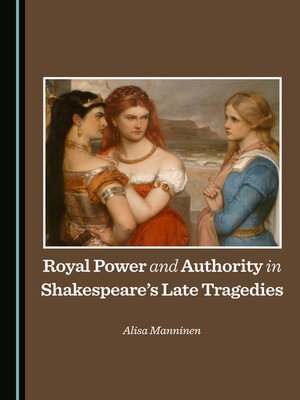
Sign up to save your library
With an OverDrive account, you can save your favorite libraries for at-a-glance information about availability. Find out more about OverDrive accounts.
Find this title in Libby, the library reading app by OverDrive.



Search for a digital library with this title
Title found at these libraries:
| Library Name | Distance |
|---|---|
| Loading... |
William Shakespeare explores political survival as a question of interaction at court in King Lear, Macbeth, and Antony and Cleopatra. Through a discussion of authority as an element that is distinct from power, this book offers a new perspective on the importance of acts of persuasion and the contribution the late tragedies make to Shakespeare’s portrayal of monarchy. It argues that the most productive uses of the material power to judge or reward are those that reinforce royal authority and establish the monarch at the centre of the web of noble relationships.In the late tragedies, rulership is exercised at court. It acquires a nature of its own as the interaction of powerful and potentially powerful individuals among the nobility. The persuasive exercise of authority complements the tangible power that is founded on the monarch’s material resources, so that consent to the monarch’s supremacy is obtained through various discourses of justification and the performance of the monarch’s social role. Shakespeare’s combination of emotional intimacy with political concerns becomes central to the tragedies of these three plays when the failure to establish control over power and authority leads to the breakdown of established values and political traditions.







